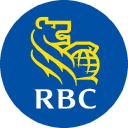Credit cards
Review the perks and responsibilities of owning a credit card.
Credit cards can be a handy financial tool. When used properly, they can facilitate transactions, offer perks, and offset bank fees. When used irresponsibly, they can accumulate debt and negatively affect your credit.
It's important to remember that your credit card's available balance does not increase your budget's income total. You should pay back credit card balances during the time between the end of your last billing cycle and the date that your payment is due. This way, you'll avoid interest charges and maintain good credit.
Find student credit cards
Perks of having a credit card
- Offers peace of mind in emergencies
- Convenient for pre-authorized bill payments
- Offers unlimited transactions at no additional cost
- Convenient for online transactions
- Offers perks that can be financially rewarding (ex: cashback)
How to use a credit card responsibly
- Consider a low-limit, low-interest card or a card with student perks.
- Review your credit card statement each month and pay your balance in full five business days before the due date to ensure timely payment.
- Use your mobile banking app to review your balance regularly.
- Avoid taking cash advances (which have associated fees and interest charges).
- Discuss unexpected expenses with your bank to explore alternative financing.
- Stop any credit card activity if you cannot pay your full balance.
- Keep your card number and PIN private.
Credit card risks and scams
While there are perks to having a credit card, it’s important to use it responsibly and carefully as there are many scams aimed to target your personal, credit and banking information. If you are (or believe you may be) a victim of fraud and don’t know what to do, see the Government of Canada website. Some common types of scams are:
Designed to target and appeal to consumers in debt by falsely promising insolvency options.
What to look out for when considering a debt advisory firm:
- Unrealistic promises or pressure to make quick decisions.
- Asking for fee’s up front or claiming they can get you a ‘better deal.
- Charging unnecesau fee’s disguised as referral fees or administration fee’s.
- They tell you to stop communicating with, an/ or paying your creditors or claim they can negotiate with them on your behalf.
- They may only offer online services with no option for in-person service.
Learn more about debt relief scams on the Government of Canada website.
If you are looking to find a Licensed Insolvency Trustee, the Canadian Association of Insolvency and Restructuring Professionals (CAIRP) and the Office of Superintendent of Bankruptcy (OSB) have map-based directories of LITs and LIT firms. Licensed Insolvency Trustee services are available across the country, even in remote locations.
People posing as government of Canada Staff. They will call and try to scare you by saying you have done something wrong and that you owe fee’s. They may even say that you could lose your immigration status, be deported, threaten your family or home.
The IRCC will never:
- contact you over the telephone to collect fees or fines,
- be aggressive or threaten to arrest or deport you,
- threaten to harm you or a member of your family, or damage your home or property, or
- ask for personal information over the phone (except to verify information you already gave us).
Learn more about fraud targeting newcomers on the Government of Canada website.
Other common scams are fake emails, fake computer virus, and fake prizes. To learn more about these scams:









